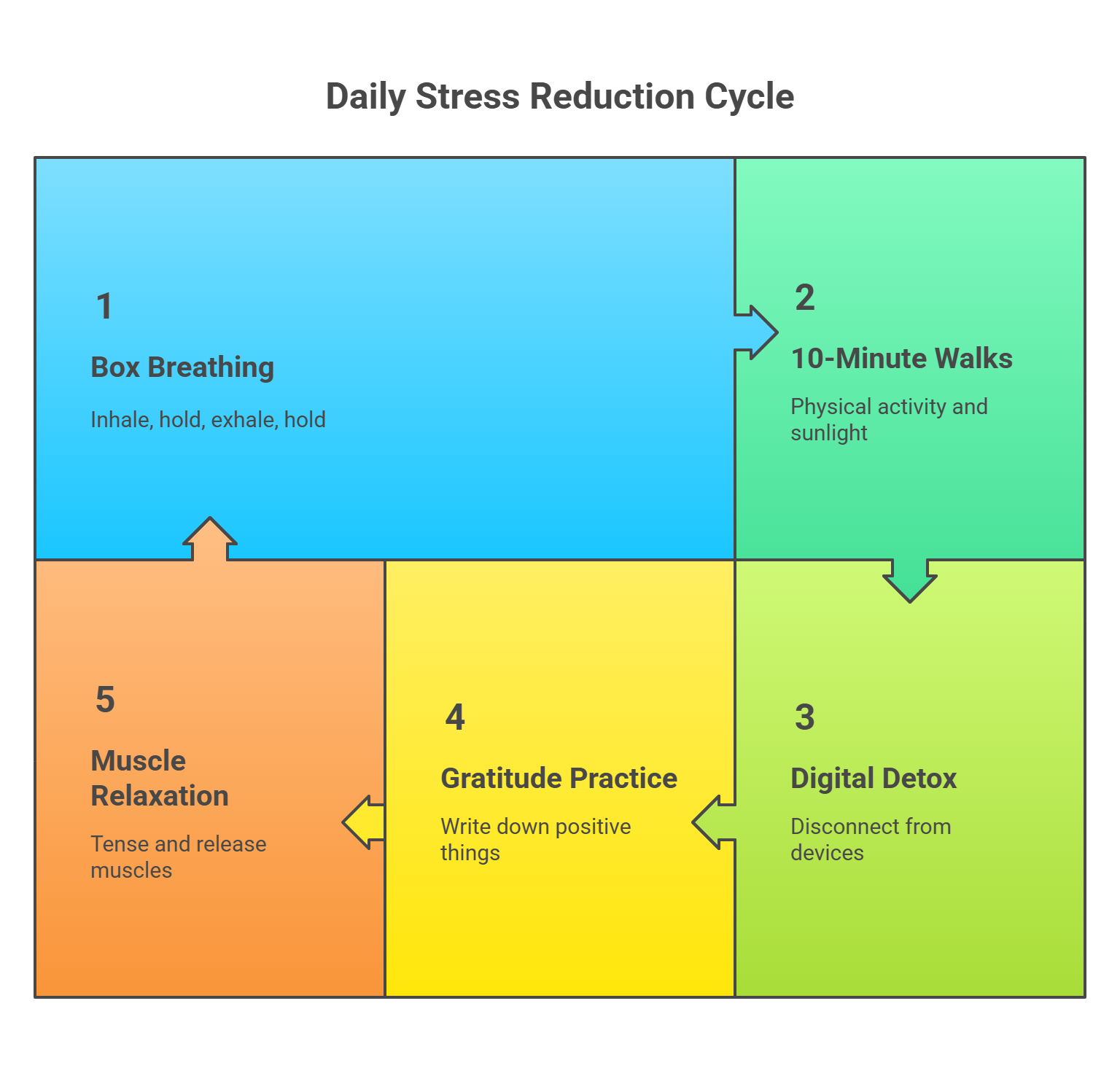
Stress Less, Think Sharper: The Surprising Link Between Relaxation and a Brain Boost
Discover how managing stress can supercharge your clarity, focus, and mental strength
When you manage your stress, your brain thanks you—big time. Reducing chronic stress doesn’t just make you feel calmer; it sharpens your focus, strengthens memory, and helps you bounce back mentally. This article breaks down exactly how and why stress management is the underrated brain boost you didn’t know you needed.
Feeling Foggy? Your Stress Might Be the Culprit
Ever walked into a room and instantly forgotten why you were there? Or stared at your to-do list like it was written in hieroglyphics? You're not losing your mind—you're likely overloaded with stress.
According to the American Psychological Association, chronic stress can literally shrink parts of your brain, especially the prefrontal cortex (aka your decision-making, focus, and memory HQ).
Here's the Good News:
When you take intentional steps to reduce stress, your brain actually heals and improves. Yep, just like a muscle after a workout.
Brain Boost Benefits of Stress Management
🧠 1. Sharper Focus and Mental Clarity
Stress floods your system with cortisol, which is great in small doses but toxic in large amounts. Chronic high cortisol levels slow down information processing, according to Harvard Medical School source.
When stress is under control, your brain can focus like a laser pointer on a caffeine drip. That means faster thinking, better problem-solving, and fewer “What was I doing again?” moments.

🧠 2. Improved Memory
Research from the University of California, Berkeley found that chronic stress damages the hippocampus, the part of the brain critical for memory and learning.
On the flip side, incorporating daily stress-reducing habits like deep breathing or mindfulness meditation can restore memory functions. Think of it as a daily backup for your brain.
🧠 3. Better Emotional Resilience
Think of your brain like a computer. If you never clear the cache, it slows down. Managing stress regularly helps clear that emotional clutter so you don’t crash when life throws curveballs.
In fact, a study published in Frontiers in Human Neuroscience found that mindfulness-based stress reduction increases gray matter in brain regions associated with emotional regulation and perspective-taking source.
Translation: Less meltdown, more mental flex.
🧠 4. Enhanced Creativity and Problem-Solving
When your mind isn’t in fight-or-flight mode 24/7, it has room for creative thinking and innovation. Ever notice your best ideas hit you in the shower? That’s not a coincidence—it’s science.
The Journal of Cognitive Enhancement reports that stress reduction through practices like yoga and meditation improves divergent thinking, a key ingredient in creativity source.
Easy Ways to Stress Less Daily (That Actually Work)
You don’t need to run off to a mountain retreat. Try these small-but-mighty habits:
Box Breathing (4-4-4-4 method): Inhale for 4, hold for 4, exhale for 4, hold for 4. Repeat. Brain = rebooted.
10-Minute Walks: Physical activity reduces cortisol. Bonus: sunlight exposure increases serotonin.
Digital Detox: Shut off your phone for 30 minutes. Yes, you’ll survive. And your brain will thrive.
Daily Gratitude Practice: Writing down 3 good things rewires your brain toward positivity.
Progressive Muscle Relaxation: Tense and release muscle groups for instant stress relief.

Real Talk: Your Brain Deserves a Break
Managing stress isn’t about becoming a Zen master overnight. It’s about giving your brain the space to work the way it was meant to.
You don’t need fancy apps or silent retreats—just consistent, simple habits that let your mind breathe. The payoff? Faster thinking, stronger memory, better mood, and a solid shot at becoming the sharpest person in the room (or at least the Zoom call).
Final Thought: Stress is Inevitable. Burnout Isn’t.
Your brain isn’t a machine. It’s a masterpiece. So if you want more “aha!” moments and fewer “I need a nap” crashes, start by managing your stress. Your neurons will throw a party in your honor.
 Add Row
Add Row  Add
Add 




Write A Comment